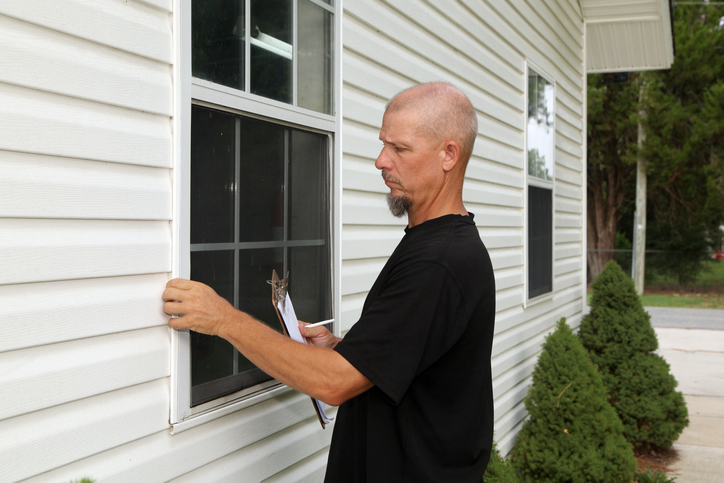Author: toppyhem
4 Essential Skills You’ll Learn in Logistics Management Training
March 21, 2023
Logistics management involves planning, implementing, and controlling the efficient and effective movement of goods, services, and people. It requires a unique set of skills and expertise that can only be developed through proper training. Our Global Supply Chain and Logistics Management online training at North American Trade Schools (NATS) can provide the necessary knowledge and skills to excel in this field. In this blog post, we will discuss four essential skills you will learn in Logistics Management Training.
1. Supply Chain Management Skills
Supply Chain Management is managing the flow of goods and services from the point of origin to the point of consumption. It includes the coordination and integration of all activities involved in the production and delivery of goods and services.

Logistics Management training provides a comprehensive understanding of supply chain management principles and techniques, including inventory management, demand forecasting, and transportation planning. Through supply chain management, logistics professionals can ensure that goods and services are delivered to customers promptly and cost-effectively.
Logistics Management training exposes you to the finer details of supply chain management, helping you understand the whole process and gain essential knowledge that will make you a valuable asset to your organization.
2. Operations Management After Logistics Management Training
Operations management is the management of the processes and resources that are used to produce goods and services. It involves the planning, scheduling, and controlling all activities required to produce a product or service. Logistics Management training provides individuals with the knowledge and skills to manage operations effectively. This includes understanding the various processes involved in producing goods and services, such as procurement, manufacturing, and distribution.
Our Logistics Management online course covers techniques for optimizing production and streamlining operations for a more efficient workflow.
3. Leadership and Communication Skills
Logistics management is a people-driven field, and effective leadership and communication skills are essential for success. Logistics Management training provides individuals with the knowledge and skills to lead and communicate effectively. This includes understanding the principles of leadership and how to motivate and inspire a team. Communication training at NATS covers the principles of effective communication, such as active listening, clarity, and conciseness. Effective leadership and communication skills enable logistics professionals to work well with team members, customers, and suppliers.
4. Warehouse Management Skills
In addition to the other essential skills discussed above, warehouse management is another crucial skill that logistics professionals will learn during their training with us. Warehouse management is the process of organizing, managing, and controlling the operations of a warehouse. It involves managing inventory, handling materials, and ensuring the safe and efficient movement of goods within the warehouse.

Safety and security are critical in warehouse management. Warehouse accidents can lead to injuries, product damage, and increased costs. Effective safety and security measures help to minimize the risk of accidents and protect the warehouse and its contents from theft and damage. Logistics professionals should learn how to implement safety and security measures, such as safety training, safety audits, and security systems, to ensure a safe and secure warehouse environment.
Effective warehouse management is critical for the success of any logistics operation–as poor warehouse management can lead to inefficiencies, delays, and increased costs. Effective warehouse management can help to improve productivity, reduce costs, and ensure the timely delivery of goods.
Are you ready to acquire these skills by obtaining a Logistics Management diploma?
Contact NATS to learn how you can get started.

Cabinet making is an intricate and complex woodworking skill that requires precision, accuracy, and attention to detail. As a cabinet making school student, you’ve probably spent much time and effort crafting your cabinets to perfection. But what about finishing them? While cabinet making requires a high degree of technical skill, it’s the finishing that gives a cabinet its final touch of class and sophistication
The final step in the process can make or break the overall look and feel of your creation. Here are five finishing tips to help you achieve a professional-looking finish for your cabinets.
1. Prepare Your Surfaces After Cabinet Making Training
Before you start applying any finish, make sure your surfaces are properly prepared. This means sanding them down to remove any rough spots or imperfections. Start with a coarse grit sandpaper and work your way up to a finer grit, just as you were taught in cabinet making training. Make sure to sand in the direction of the grain to avoid creating any scratches.

After sanding, wipe down the surfaces with a tack cloth to remove any dust or debris. Pay attention to the insides of your cabinet and cover exposed hardware with tape.
2. Choose the Right Finish
There are many different types of finishes to choose from, each with its own benefits and drawbacks. The type of finish you choose will determine the final look and feel of your cabinets, as well as how they will stand up to wear and tear over time. Some popular options include lacquer, varnish, and oil-based finishes. Consider the type of wood you’re working with, as well as the desired look and feel of the finished product. If you’re unsure which finish to use, talk to your instructor or a professional in the field.
3. Apply Thin Coats
When applying your chosen finish, it’s important to remember that less is more. If you apply too much finish at once, it may drip and have uneven coverage, which can be difficult to fix later.

To achieve a thin coat, apply a small amount of finish to your brush or spray gun. Then, work the finish into the wood, covering the entire surface evenly. Be careful not to overwork the finish, as this can result in drips and an uneven appearance. Use a brush or spray gun to apply the finish, making sure to follow the manufacturer’s instructions for application and drying times.
4. Sand Between Coats
After each coat has dried, use fine-grit sandpaper to lightly sand the surfaces, drawing inspiration from insights gained in your cabinet making courses. This will help remove any imperfections and ensure that the next coat adheres properly. Be careful not to sand too much, or you may remove some of the finish.
5. Finish With a Topcoat
Once you’ve applied your final coat of finish, consider adding a topcoat to protect the surfaces from wear and tear. A topcoat can also help enhance the appearance of the finish, making it look more vibrant and lustrous. Some popular topcoat options include polyurethane and wax.
Remember to prepare your surfaces properly, choose the right finish, apply thin coats, sand between coats, and finish with a topcoat. With these tips in mind, you’ll be able to create beautiful, high-quality cabinets that will stand the test of time.
Are you ready to begin your training at cabinet making school?
Contact NATS to learn how you can get started.

If you’re looking for a career that allows you to explore your interest in houses and construction with your desire to help others, home inspection is an excellent option to consider. This is a unique career path that will continue to be in high demand for the foreseeable future. People will always want to acquire property, and savvy buyers will typically seek a professional opinion to ensure that the condition of their prospective investment meets certain standards.
Home inspectors use their trained eyes to ensure that a house meets current standards for electrical systems, HVAC, plumbing, roofing, and structural codes. They identify danger signs or poor workmanship for home buyers seeking to make an informed decision about their purchase.
If you think this career path could be right for you, but you’re unsure of what it takes to succeed in this role, keep reading to learn about the characteristics of an effective home inspector.
1. You Have Strong Ethics and Integrity
Purchasing a home is one of the largest investments a person will make in their lifetime. Many offers are contingent on a passing grade on the home inspection. For this reason, home buyers will want to hire an inspector they can trust, and this trust is earned. Many motivations are at odds during the sale of a house. For instance, home sellers will sometimes make efforts to conceal defects in order to get the highest profit, or realtors may pressure you to pass a home in order to secure their commission.

After Home Inspector training, it will be essential to focus on the best interests of the home buyer despite other pressures and remain honest about the condition of the house they’re considering. This ensures that you uphold a positive reputation and avoid legal action. By joining a professional home inspection alliance, you can bolster the trust of your future clients. Our Home Inspection training program is recognized and recommended by the Canadian Association of Home & Property Inspectors in all provinces. By earning your diploma with us, you can start your career with reputability.
2. You’re an Effective Communicator
Spotting warning signs in a home only represents half of your job as an effective home inspector. Your ability to communicate your findings to clients is crucial since the main objective throughout your Home Inspector career is to keep home buyers informed. Many of your clients will be unfamiliar with building codes, the many systems that make a house operate effectively, and your inspection process. Surely, clients will appreciate your efforts to transform an otherwise overwhelming process into an accessible learning experience. Be sure to focus on meeting all clients where they are in terms of their knowledge about houses and the systems within them. Adjust accordingly, using analogies and vocabulary they’ll understand, explaining concepts as you go, and checking in to ensure that all questions are answered.
3. You Aspire to Have Your Own Business After Home Inspector Training
Though some home inspectors work as part of a team, most often, they are self-employed. As your own boss, you’ll be able to enjoy the freedom of setting your own hours and controlling the terms of your work. With this freedom comes the responsibility to exercise excellent organizational skills, marketing savvy, and independence.

After completing our Home Inspection training program, you’ll be equipped with the skills, knowledge, and hands-on practice you’ll need to confidently and competently take on the demands of a career in this field.
Are you ready to earn your Home Inspector diploma?
Contact NATS to learn how you can get started.
Networking Tips For An Apprentice After Electrician Training
February 28, 2023
Networking is important no matter which industry you are in, because it allows you to form mutually beneficial relationships with other professionals in your field. Once you become an apprentice after electrician training, you’ll be looking to grow in the trade – honing your skills and gaining access to professional opportunities. Networking is a great way to meet and stay in touch with seasoned industry experts and those just starting out like you. Having a broad network can open many doors for you professionally, helping you stay on top of new opportunities.
Read on for some great networking tips to keep in mind during your training and throughout your career.
Partake in Industry Events and Conferences
Industry events and conferences are great ways to network with people in your industry. While larger conferences do not necessarily happen often, it is important to attend them because you will have the opportunity to learn from and discuss with other electricians and apprentices, and create beneficial relationships.
A great way to learn about these conferences and events is either online or through your instructors during your Electrician diploma. Your instructors are experienced in the industry and have already built their network over several years. They are great starting points for discovering these events and conferences. Online, you will find many different events, and the beauty of these is that they occur digitally and can be attended no matter where you are.

Use Social Media to the Fullest Extent
Social media is a great networking tool that you can utilize at any point, and it will be beneficial for years to come. There are two primary social media networks you should be using to network during and after Electrician training – these are LinkedIn and Facebook. LinkedIn is great for forming connections with qualified electricians or apprentices. You never know when someone who you interacted with on social media may be able to present an opportunity to you, and vice versa. A great starting point is your instructors and fellow apprentices.
Facebook is a little different in that it would be more advisable to join a local electrician group instead of adding people as friends. This allows you to interact with people in the same career as you and enables knowledge sharing. There may also be opportunities for apprentice electricians posted on these groups. The key is to maintain consistent contact. Speak to instructors and fellow apprentices about electrician groups, otherwise, a Facebook search can also put you in the right direction.

Keep in Contact With People You Meet in Electrician Training
During electrician training, you will interact with your instructors and classmates, so try to develop relationships that will help you to expand your network. Keep in contact with them after you have completed your training, because your instructors can introduce you to people in the industry, since they’re extremely knowledgeable and have contacts there. Your peers may also find other opportunities that they can share with you. It takes time and effort, but having a great network will reap its benefits in the longrun.
Are you ready to begin Electrician college?
Contact NATS to learn how you can get started.
Considering Home Renovation Training? A Day In The Life of A Renovation Technician
February 27, 2023Home renovation is an industry that is constantly growing, and the demand for skilled Renovation Technicians has never been higher. With the right training, this career path can be rewarding and exciting. In this blog, we will be taking a look at what a typical day in the life of a renovation technician looks like and why home renovation training is a smart career move.
A Home Renovation Technician is a professional who works on home renovation projects. They typically work on many projects, from small-scale renovations, such as bathroom and kitchen upgrades, to larger projects, such as basement remodels or even complete home renovations.
A typical day in the life of a Home Renovation Technician will vary depending on the specific project they are working on. However, there are certain tasks that they will commonly perform. These tasks include:
Site Inspections and Measurements After Home Renovation Training
Before any work can begin, a Home Renovation Technician will visit the site and accurately measure the space to be renovated. They will also inspect the area for any potential hazards or issues that must be addressed.

Accurate measurements are essential to ensure that the renovation plan is feasible, and that the materials and fixtures that will be installed fit perfectly in the space. The Home Renovation Technician will rely on their home renovation training and various tools, such as measuring tapes, laser distance meters, and leveling tools, to ensure accurate measurements.
After the initial site inspection, the Home Renovation Technician will work with the homeowner to plan and design the renovation project. This will include creating a detailed plan and schedule for the work to be done, as well as selecting materials and fixtures.
Demolition, Installation and Construction
Once the planning and design stage is complete, the Home Renovation Technician will begin the actual work on the project. This typically involves demolition and preparation of the area to be renovated, including removing old fixtures and materials.

Before demolition work can begin, the Home Renovation Technician must ensure the site is safe to work on. This may involve shutting off electricity or water, or putting up barriers to protect the surrounding area. They must also ensure that hazardous materials, such as asbestos or lead, are safely removed or contained. Once the site is safe to work on, the Home Renovation Technician will begin the demolition process. They will need to work carefully to avoid damaging any parts of the site that are being preserved, drawing inspiration from techniques they learned in their home renovation courses.
The next stage of the renovation process is the installation and construction phase. This is where new fixtures, appliances, and materials will be installed, and any new structures or features required by the renovation plan will be constructed.
Finishing and Cleanup
The final stage of the renovation process is finishing and cleanup. At this stage, the Home Renovation Technician will apply finishing touches to the space, such as painting walls, for instance. They will also ensure all plumbing and electrical work is completed according to the necessary codes and regulations by licenced electricians and plumbers.
In addition to the finishing touches, the Home Renovation Technician will also perform a thorough cleanup of the site. This includes removing all debris and waste materials from the renovation area, ensuring that all tools and equipment are properly stored away, and cleaning the area to ensure it is safe and ready for use.
Looking for a reputable home renovation college?
Contact NATS to learn how you can get started.
Home inspectors play an important role in the process of purchasing a home. They help buyers by ensuring that homes and investment properties do not contain serious issues–which could lead to expensive repairs down the road. After completing your home inspector training and earning your certification, you’ll be working with clients to examine all the details of homes–advising them accordingly. As a home inspector, it’s your responsibility to ensure that buyers are aware of the potential issues within their future home. Thus, it’s important to conduct a thorough inspection in which all problem areas are identified. Your findings will indicate the current living conditions of a home and will impact a buyer’s decision on whether to proceed with purchasing the home.
When conducting a home inspection, keeping a few important things in mind will enhance your ability to successfully account for all possible issues within a home. Check out the infographic below to discover five things you should remember once you begin your home inspector career.
[Infographic] 5 Things To Remember When Conducting a Home Inspection
Examine the Roof
When inspecting a home’s roof, check for:
- Leaks
- Dirty or clogged vents
- Missing, damaged, or loose shingles
- The integrity of the chimney’s structure
Did you know? 39% of home insurance claims involve roof problems.
Look Out for Drainage Problems
Drainage issues can lead to water damage. Look for:
- Functioning gutters and spouts
- Water damage beneath a home’s floor (use an infrared camera)
- Moisture stains on the ceiling
Check for Electrical Hazards
Ensure that a home’s electrical system is functioning properly by:
- Checking that the system is up to code
- Verifying that all light switches work
- Testing each electrical outlet
- Testing circuit breakers
Determine Whether the Foundation is Stable
A home’s foundation is vital to its safety and stability. Look for:
- Cracks
- Signs of water damage
- Sloping floors
Investigate for Health Hazards
Test for the following using the appropriate device:
- Radon
- Asbestos
- Lead (may be present in paint)
When you remember to check for these five things, you’ll be sure to conduct a thorough inspection!
Sources:
https://archive.curbed.com/2016/6/21/11925150/home-inspections-questions-checklist
https://www.cibc.com/en/personal-banking/mortgages/resource-centre/home-inspection.html
https://themortgagereports.com/37715/home-inspection-checklist-what-to-expect-on-inspection-day
4 Best Practices for Advising Clients After Home Inspection Training
February 15, 2023
Once you become a Home Inspector, you will play an important role in a home buyer’s decision-making process, advising them on the home’s condition so they can make an informed purchasing decision. There are several best practices you should employ when advising future clients. These are rooted in excellent communication skills that your home inspector training will help you develop. Through them, you’ll be able to deliver the best possible service to your clients.
If you want to learn about these best practices, keep reading!
1. Don’t Overpromise and Underdeliver
As a Home Inspector, there will be things that you won’t be able to do while on the job. During your Home Inspector course, you’ll discover what those things are. For example, you can’t destroy or damage any property to inspect an aspect of the home. If it’s inaccessible, then it remains so. It’s important to make this clear to clients so they understand the full scope of your work and capabilities. If you tell them that you can do something when in fact, you know you can’t, you will be over-promising. Be sure to be clear in your communication because if you aren’t, this will lead to disappointment on the client’s side.

2. Maintain Professionalism After Home Inspector Training
You will inevitably encounter challenging clients during your time as a Home Inspector, but it’s how you communicate with them that’s important. You need to maintain your composure and act professionally at all times. During your training, you will learn various beneficial communication techniques. With unhappy clients, it will be vital to draw on them to navigate the situations professionally.
For example, if a client would like you to inspect an area that you’re unable to–whether it is unsafe or inaccessible–you can draw upon your communication skills to explain to the client that you’re not able to inspect that specific area and describe the reasons why. Providing a detailed explanation will allow the client to fully understand the scope of your work and why you’re unable to inspect some areas of a home. You may also suggest alternative options to the client, helping them get what they need without putting yourself at risk.
3. Ensure Clients Are Present During Home Inspections
This one might seem obvious, but it is important to try to do it with every client you have. When a client is there with you while you conduct the home inspection, they can ask questions and learn more about the process overall. If they only get the report, even if it is detailed and done thoroughly, it may not address a concern they would have had if they had been there. Utilizing the communication skills you mastered in training, you can accurately explain the situation to them during the inspection. This will help alleviate any concerns the client has and allow you to draw attention to what they should or should not be concerned about.

4. Always Be Transparent and Honest
When you become a Home Inspector, you will play a significant role in a client’s home buying decision. It’s essential to maintain transparency at all times about the situation of the home you’re inspecting. During Home Inspector training, you’ll be taught the value of transparency and clear communication with clients.
For example, you may find yourself working alongside a realtor that’s eager to make the sale. Having integrity means that if the inspection report comes up with issues, you must always be transparent about them to the client–putting them first. While the realtor may want to make the sale despite the issues, it is your responsibility to bring them to the clients’ attention regardless, allowing them to make the final decisions with a complete understanding of the home’s condition. Transparency is important in any role, but especially so when clients are making one of the most significant purchases of their lives and are entrusting you to provide all of the details needed to make an informed decision.
Are you ready to begin a Home Inspector Diploma program?
Contact NATS to learn how you can get started.
A Day in the Life of an Apprentice Boilermaker After a Welder Diploma Program
February 10, 2023
Boilers are large pressure vessels that create steam for energy. This energy is used to create paper, process foods, and generate electricity. Specialized welding skills are needed for the construction, installation, maintenance, and repair of boilers, and if you’re considering welding training, a boilermaker role could be a good option. After completing a reputable welding program, you’ll need to finish an apprenticeship program, where you’ll hone your skills and make the professional connections needed to launch your career as a journeyman boilermaker.
Typically, Canadian apprenticeship programs last a total of 3 years. They usually occur in 12-month stretches between in-cass instruction periods. Students value apprenticeships because they offer them the perfect opportunity to gain hands-on experience and earn money simultaneously. Read on to learn what it might be like to complete a boilermaker apprenticeship.
Start With Safety Measures After a Welder Diploma Program
As with all occupations in the trades, boilermakers must prioritize their safety. The beginning of your day as an apprentice boilermaker is the perfect time to ensure that you’re wearing the proper personal protective equipment and that your environment is safe. Your role can expose you to several hazards, such as flying objects, dust, splashed acid, sharp objects, the sun, and heavy machinery, which can harm your eyes, head, feet, respiratory system, and skin. After completing your welder diploma program, ensure that you wear eye protection, grade 1 protective footwear, sun protection, air-purifying respirators, and high-visibility clothing. Additionally, make sure that you’re provided with a safety harness when you’re working at heights.

Aid the Construction and Installation of Boilers
One of your principal learning objectives as a boilermaker apprentice is the construction and installation of boilers. These duties require several skills that you’ll have plenty of opportunities to practice throughout your apprenticeship. Some of these skills include blueprint reading, cutting metal, fitting and welding metal together, and directing crane operators during installation and repair. After welding technician courses, you will often begin by shadowing and assisting. With time and experience you’ll be able to complete these basic boilermaker duties all on your own. In addition to construction and installation, maintenance will be another important aspect of your work as a boilermaker apprentice.

Apprentices Keep Boilers Clean as a Maintenance Practice
Boiler cleaning improves the performance of the machine. By removing limescale and soot buildup, you’re preventing heat loss, which reduces downtime for the boiler and extends its lifespan. This is a cost-effective practice that makes your role valuable to companies that save significant sums of money with your services. As a boilermaker apprentice, you will learn to conduct regular visual inspections, test the effectiveness of a boiler to determine whether it needs maintenance or replacement, and clean boilers. You will likely use cleaning solvents, scrapers, and wire brushes to complete this task.
Learn the fundamentals of welding in our state-of-the-industry facility and start your successful boilermaker career with us.
Are you ready to begin welding courses?
Contact NATS to learn how you can get started.

An HVAC Technician is a skilled professional that installs, repairs, and maintains, heating, ventilation, air conditioning, and refrigeration units. If you are considering becoming an HVAC Technician, there are certain safety principles you will need to know and remember. Once you start your career, you will find that you’ll be working with noxious gasses and electrical systems, and as such, you’ll need to remember safety protocols to avoid any harm. Read on for some safety practices you’ll want to remember throughout your training and career.
Wear PPE After HVAC Technician Training
As an HVAC Technician, you are likely to be exposed to noxious fumes, as well as other particles such as dust, debris, and chemicals which may cause harm. It is essential always to wear personal protective equipment (PPE) while you work. For instance, a respirator will help protect you against fumes, and safety goggles can help protect your eyes against any debris or harmful liquids. Other important PPE you may need as an HVAC Technician includes:
- Safety gloves
- A hard hat
- Non-slip shoes
- Earplugs
During your HVAC Technician Diploma program, you will learn the importance of protective gear, including how it should be worn and why it is needed in different scenarios. For example, wearing earplugs when working in a loud environment can help avoid damaging your hearing. Always wearing your safety gear on the job will help prevent you from suffering serious harm.

Be Cautious When Handling Chemicals
An important safety practice to always consider while working as an HVAC Technician is to be cautious with chemicals. You will be working with chemicals daily, and some, such as solvents and refrigerants, can be very harmful if not handled correctly. They may cause burns or in some severe cases, poisoning. During HVAC Technician training, you will be taught how to handle these chemicals safely.
Practical examples will be given and overseen by instructors, where you will need to dispose of, replace, and transport chemicals safely. This will be done using the knowledge of rules and regulations you learn during your training. For example, you’ll learn how to remove and store refrigerant chemicals safely.

Turn Off the Electricity While you Work
When working with units that have a water system or have general electrical issues, it is safer to turn off the main circuit breaker before starting work. Water is a conductor of electricity and can cause electrocution. Water leaking onto the unit you are working on may also be damaging to the unit, as it may cause a short circuit. This can be not only damaging for the unit but is a safety and fire hazard, as well. Additionally, it will be essential to analyze a unit before you begin working on it to see if there are any fluid leaks. This will help you better understand if you need to turn off the main circuit breaker.
The HVAC training you receive at NATS will help you identify leaks, teach you how to fix them, and help you understand the safety practices to follow throughout your career.
Are you ready to begin training for your HVAC Technician career?
Contact NATS to learn how you can get started!
Interesting Career Paths to Explore After Construction College
January 25, 2023
The construction industry consists of individuals with varying skills. All of these skilled workers play a role in making sure that construction projects meet the specifications outlined in their planning. A good construction program will prepare you to meet the needs of the industry, helping you thrive in your career.
During the construction program at NATS, you will learn the skills to fulfil several electrical industry aspects successfully. You will also learn residential wiring, code interpretation, conduit bending, electrical motor theory, service installation, print reading, and electronic controls. These are skills you can apply to various career paths upon completing the program. Read on to learn more about the careers that will be available to you after your training.
Become an Electrical Technician
An electrical technician is a skilled worker that focuses on installing wiring, ensuring that the wiring works correctly, and installing circuits and outlets to power electronics, lights and other equipment in a building. Professionals in this career will need to be able to read electrical blueprints and follow electrical codes and regulations. During construction training, you will learn these skills through practical, hands-on training. For instance, you’ll complete practical, real-world projects installing wiring similar to what you will see when working as an electrical technician.
Becoming an electrical technician will create work opportunities for you in both residential and commercial construction. You will also be able to work in a company’s maintenance department and see to the electrical needs of the company as they happen.

Become an Electrical Service Technician After Construction College
As an electrical service technician, you will specialize in ensuring that electrical equipment and systems remain operational and function as they need to. You may be required to modify systems or repair them completely.
During construction college, you will learn different wiring methods for conduits, tubing and bends. This will help you rewire electrical devices where the wiring has corroded or is no longer functional. You will also learn how to apply the Canadian Electrical Code (CEC), ensuring that repairs and rewiring are done to the standard required.
Become an Electrician by Continuing Your Apprenticeship
As a graduate earning your Construction and Maintenance Electrician Diploma, you will be an apprentice electrician. This will allow you to continue studying the electrical trade to become a qualified electrician. While becoming a qualified electrician may be longer, it is worth considering. This is primarily due to the demand for qualified electricians in Canada. Job prospects for electricians in Canada are good and look to remain this way for years to come. Becoming a fully qualified electrician will also open other opportunities, including starting your own business.
The training you receive during your diploma program will equip you with the foundations of being an electrician. You will learn electrical theory and principles and how to apply them practically. You will also learn the foundations of what an electrician needs to know, such as wiring, the CEC, and safety principles, ensuring you are well-equipped to continue your studies to become a fully-qualified electrician.

Are you ready to begin your construction courses?
Contact NATS to learn how you can get started.






